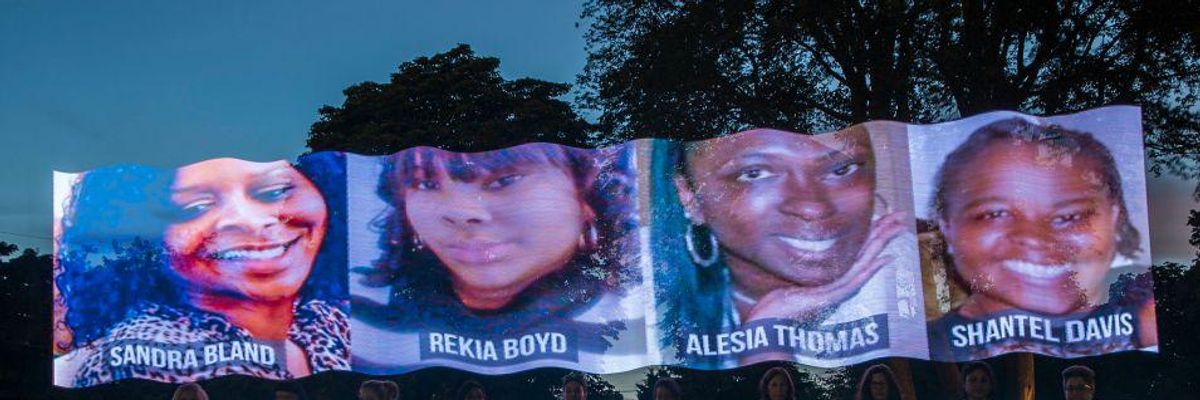In the year since Ferguson, we have been reminded that police misconduct and brutality doesn't discriminate, at least not based on gender. We know that Black women, like Sandra Bland and others before her, aren't spared from police violence. Several commentators, including
Charles Blow,
Lisalyn Jacobs, and
Roxane Gay, have authored profound pieces about Black women's experiences and the cloak of invisibility that too often surrounds them, particularly when the discussion turns to violence, police misconduct, and holding law enforcement accountable.
Fortunately, that is changing. #SayHerName has elevated and honored Black women's experiences and the dynamic #BlackLivesMatter social justice movement has broadened the conversation to highlight the many ways in which all Black people are affected by violence, police misconduct, and injustice.
But the lens must expand even further. When we speak of the reality of Black women's lives and efforts to reform the criminal justice system, we must continue to also speak about gender bias in policing and how it results in improper, and often illegal, police responses to domestic violence and sexual assault cases.
The reality is domestic violence-related calls constitute the
single largest category of calls received by the police. Over one million women are sexually assaulted each year, and more than a third of women are subjected to rape, physical violence and/or stalking by an intimate partner in their lifetime. And have no doubt: Black women and other women of color are
disproportionately impacted.
Here are just a handful of stories about police misconduct in domestic violence and sexual assault cases that acknowledge the experiences of women at the intersection of racial and gender biased policing:
- In Detroit, researchers documented how stereotyping of sexual assault victims - a significant percentage of whom were African-American - led to poor criminal investigations and failure by police to submit thousands of sexual assault kits for testing.
- In Oklahoma, 13 women reported that a police officer sexually molested them while he was on duty; that officer now faces 36 charges including felony rape, forcible oral sodomy and sexual battery.
- In Puerto Rico, the police department systematically underreported rape crimes and rarely took action when their own officers committed domestic violence, allowing 84 officers who had been arrested two or more times for domestic violence to remain active.
- In Norristown, PA, Lakisha Briggs, an African-American woman, faced eviction because police concluded that acts of domestic violence perpetrated against her - including a stabbing that required her to be taken by helicopter to a trauma center - should be considered nuisances under a local ordinance.
There are
countless stories just like these and even more that are untold or forgotten. These types of discriminatory police practices - abuses committed by officers, refusal to enforce established laws, misclassification or dismissal of domestic violence or sexual assault complaints - are deeply harmful and violate victims' civil rights. They jeopardize women's lives and safety, undermine efforts to end domestic violence and sexual assault, reduce confidence in the criminal justice system, and further the perpetuation of violence by discouraging victims from coming forward and allowing abusers to continue to commit crimes with impunity.
In spite of these troubling patterns, systemic discrimination by law enforcement is receiving attention due to the critical dialogue sparked by the
Black Lives Matter movement. Indeed, The
U.S. Department of Justice has highlighted and investigated gender-biased policing. And just last month the ACLU took lead in drafting a letter signed by 88 national organizations and 98 state and local groups
asking DOJ to issue guidance to law enforcement agencies about how to ensure that their policies and practices are free of gender bias. These harmful and violative practices will not disappear on their own. We hope DOJ will act soon.
Until then, we will keep fighting.

